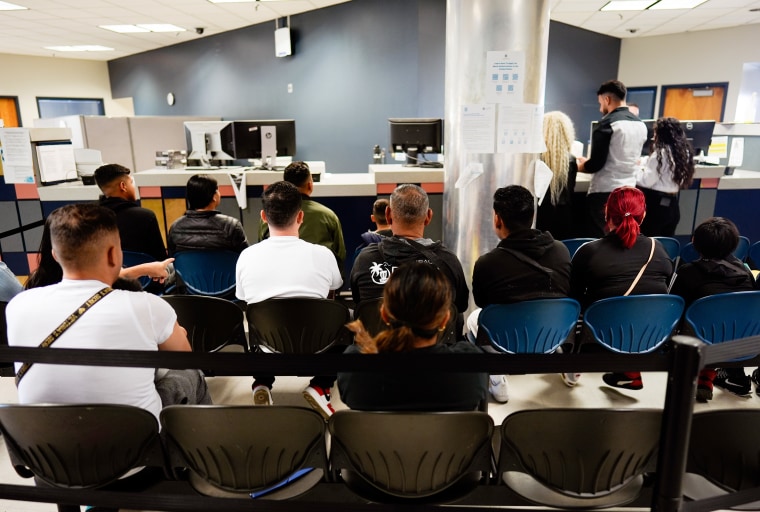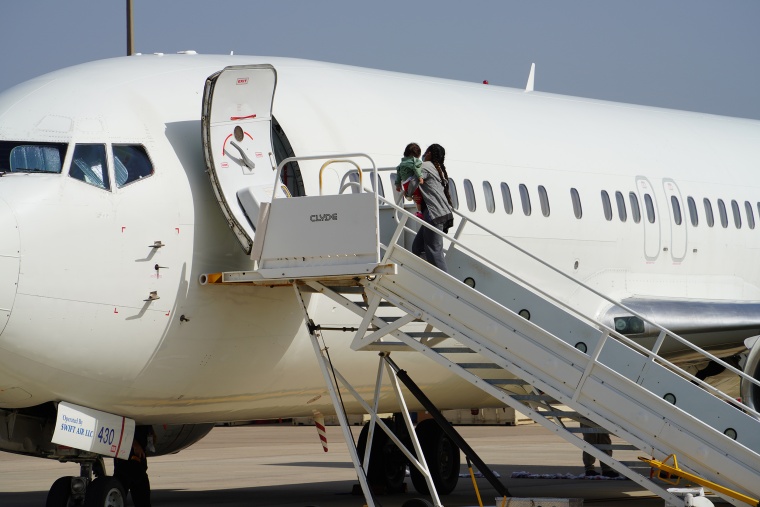Immigrant families and immigration advocacy groups are bracing for the possibility that millions of families could be separated from each other during President-elect Donald Trump’s planned mass deportation.
It is unclear how the deportation will play out or how it will affect their families. But a recent study by the American Immigration Council, an immigration advocacy group, estimates that up to 4 million mixed-status families, including illegal aliens and U.S. citizens, could be separated.
In states such as Arizona, Colorado and Pennsylvania, mixed-status families, asylum seekers and advocates say they are planning for scenarios where children are separated from their parents.

In Pennsylvania, Lilly, a U.S. citizen who did not want her last name used out of fear for her family’s safety, has been married to her husband, an undocumented immigrant from Honduras, for 10 years. Last week, she said she took her U.S.-born children to get passports and plans to have them create powers of attorney in case her husband is deported.
“If something were to happen and my husband was detained or deported, it would be very difficult for me and my children to get passports so we could leave the country to see him.” she said.
Her husband was detained for about two months in 2017 during the Trump administration. The experience affected him “mentally and emotionally,” she said.
“He made it clear that if it happened again, he wouldn’t say, ‘Let’s stay here and fight,'” Lilly said. “He’ll say, ‘Let’s go home,’ because he doesn’t want to be in custody again.”
Leading up to his successful 2024 presidential campaign, Trump rallied his supporters with a promise to enact the largest mass deportation package in U.S. history. Trump has also said he would start by prioritizing deportation of noncitizens who have committed crimes, but the former president and the incoming administration have not ruled out family separation or deportation.
Asked by CBS News last month if there was a way to carry out mass deportations without separating families, Tom Homan, who has since been named Trump’s “border czar,” said, “Families can be deported together. ” he answered.
Although the specific mass deportation plan is still being developed by President Trump and his transition team, sources familiar with the plan recently told NBC News that family detention will resume and more detentions will be held in U.S. cities across the border. He said the possibility of building a facility is being considered.

Preparation in Arizona and Colorado
In Tucson, Arizona, the Derechos Hunos Coalition, a coalition of more than a dozen nonprofits, is helping undocumented and mixed-status families create “emergency packets” ahead of potential mass deportations. There is. Organizers say the idea is partly based on past experiences of parents being detained or deported while their children were in school.
“In some cases, they made phone calls. In some cases, they couldn’t contact their mothers or friends,” said Isabel Garcia, co-founder of the coalition.
The “emergency packets” that coalition members are helping families create at local workshops include important documents such as parental power of attorney, family emergency contact information and children’s school records.
Garcia said community interest in the coalition and its services has peaked since Trump won the 2024 presidential election.
“More people are coming to our meetings. More people are calling. We’re inundated with people now,” Garcia said.
Advocacy groups are also bracing for state-level changes to immigration enforcement that could lead to deportation. Organizers with the Derechos Hunos Coalition in Tucson say they are preparing for the impact of Proposition 314, the tough state immigration and border enforcement law that Arizona voters passed in November.
The measure would make illegally entering Arizona through any port of entry a state crime, allowing local law enforcement to arrest noncitizens and state judges to order their deportation. It would also add state penalties for actions such as selling fentanyl that results in the death of another person and presenting false information to an employer or public benefit program.
Proposition 314 is one of several immigration-related state laws passed in the United States to address what advocates say is a record high in illegal border crossings under the Biden administration.
Scenes of asylum-seeker encampments in border cities and high-profile crimes committed by migrants are helping make immigration a key issue in this year’s elections, including in Arizona, where Trump returned to the White House. It became.

Some provisions of Arizona’s Proposition 314, like Texas’ Senate Bill 4, cannot take effect until similar laws currently pending in court have been in effect for at least 60 consecutive days. And some Arizona sheriffs have expressed concern about having to fully enforce Proposition 314.
“It’s going to create mistrust in the community,” Santa Cruz County Sheriff David Hathaway said, referring to the predominantly Latino jurisdiction he oversees. “They’re not going to want to call 911. They’re going to be hesitant to call us.”
Hathaway, a former Drug Enforcement Administration official, said he is also concerned about the lack of training and funding related to the new law. He worries that the 40-member staff would be overstretched if asked to handle immigration work in addition to general crime in the region.
“We are not trained to be immigration officers, and I intend to uphold the same law enforcement fundamentals as all 3,000 elected sheriffs across the country,” Hathaway said. “I happen to be near the border, and my priorities are the same as any other marshal in the United States.”
horror in colorado
Yoli Casas runs a nonprofit organization in Denver and has helped transfer more than 19,200 migrants to the city since Texas Gov. Greg Abbott began busing them to the area in May 2023. It has assisted thousands of immigrants over the years.
Although the number of daily arrivals has dropped significantly in recent months, Casas said her team has seen a surge in emails and text messages from the community that “haven’t stopped” since Election Day. .
Casas said she received messages from families asking if her organization could give them power of attorney to do things like put their children on planes during their separation.
The nonprofit leader said she has begun meeting with attorneys and families to discuss what is possible and how best to answer such questions from the community.
She said children in the after-school program she runs are also raising questions.
“They’re even asking, ‘Are we going to be deported?'” she says. “And other kids are saying, ‘Are my friends going to be deported?'”



